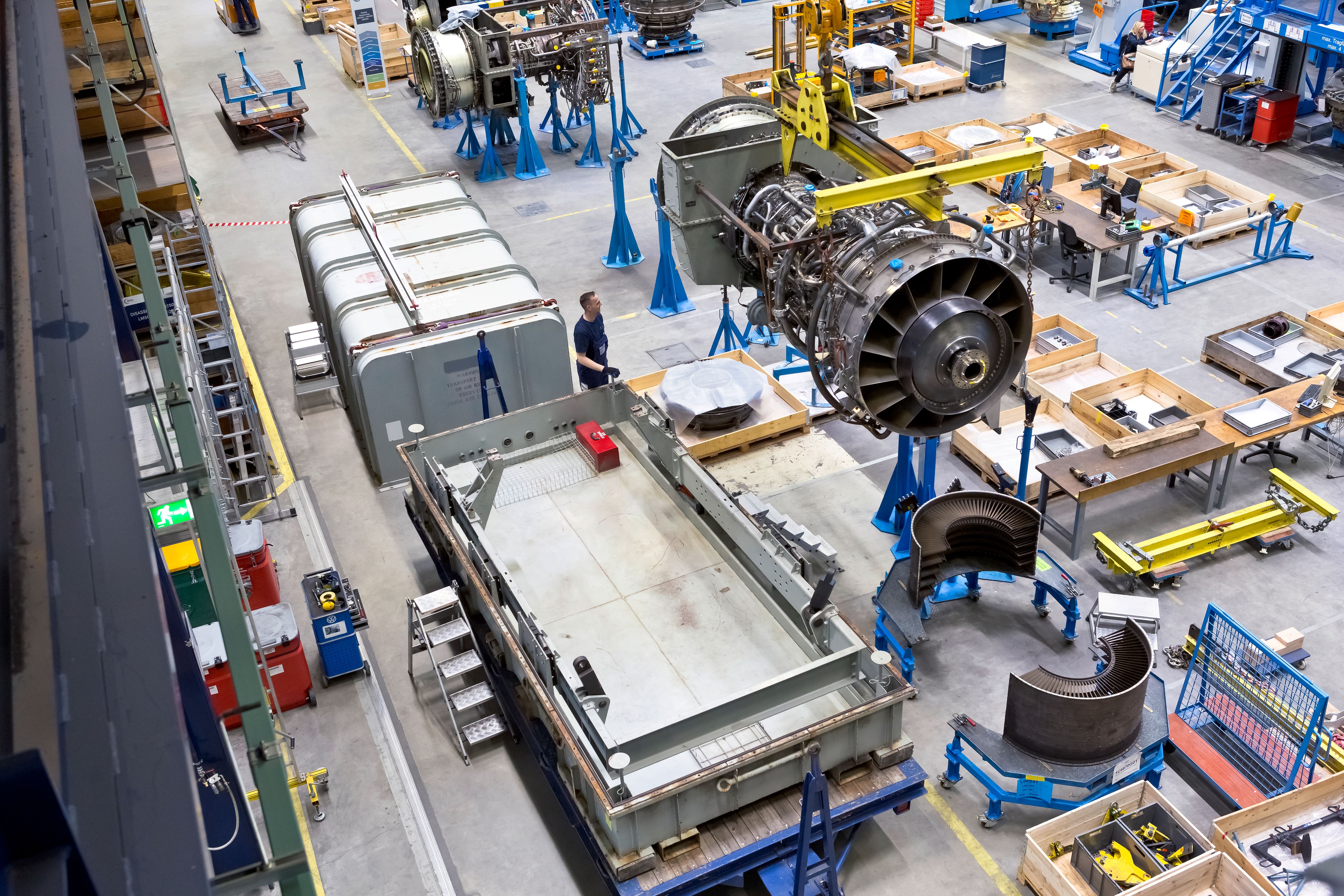MTU Maintenance Increases MRO Shop to Keep up With Energy, Shop Visit Demands
Henrik Harksen of MTU Maintenance talks about its new MRO shop that will support a 30% increase in shop visit volumes.
With the overall increase in power demand, the demand for gas turbine maintenance is also increasing. MTU Maintenance is responding to this demand by constructing a 113,000-square-foot maintenance, repair, and overhaul (MRO) and business development facility at its Berlin-Brandenburg, Germany, location.
“The market is expanding considerably,” said Henrik Harksen, Director of Sales for IGT, MTU Maintenance Berlin-Brandenburg. “There is a rising demand for energy worldwide to cover both traditional industrial and societal needs and, lately, for new economies, such as data and computing centers running cloud-based and artificial intelligence (AI) services. Industrial gas turbines (IGTs) are a complementary technology or power supply to bridge society’s energy transitions and renewable energy development. Naturally, this translates into a larger demand for MRO shop capacity in the IGT industry, which we are positioning ourselves to support.”
An LM6000 on MTU Maintenance's shop floor. Credit: MTU Maintenance Berlin-Brandenburg

The new MRO production hall will support a 30% increase in shop visit volumes to service GE Aerospace’s LM-series aeroderivative IGT, including the LM2500 and LM6000, as well as other aeroderivative models. It will house 40 additional aeroderivative engine experts, an IGT field-service shop, and a modern apprentice workshop, giving current and aspiring MTU mechanics access to a state-of-the-art facility to develop their skills to match their future working environment.
The upgraded shop will have an engine dock for rapid maintenance and turnarounds. “The key factor in turnaround times is the supply chain,” Harksen said. “That is, how fast we get serviceable parts in to complete our shop visits, either repaired or as new parts from a variety of vendors. At MTU Power, we make the process as efficient as possible on the workshop level thanks to more capacities and an optimized production flow run by a highly qualified and ready team of mechanics. In addition, we continue to exhaust all possible avenues in our vendor network to get parts and repairs done as quickly as possible so that we counteract the persistent supply-chain constraints.”
Harksen said MTU Power continuously assesses what it needs to improve its service provision and how to keep its facilities competitive and cutting edge. To stay up on trends, component parts, and more, MTU is continuously exchanging information with the engine OEM on the latest trends and technologies regarding maintenance and component repairs.
“We also have our in-house engineering to support the latest technologies and guarantee the customer that their assets are serviced in accordance with the latest quality standard,” Harksen said.
An MTU mechanic works on an LM6000 engine. Credit: MTU Maintenance Berlin-Brandenburg.

Earlier this year, MTU upgraded its test cell to performance testing on the LM6000PF+, and in 2024, it revamped its test facility with the latest testing software and hardware in collaboration with its parent company MTU Aero Engines.
“This consolidates performance testing for MTU Maintenance Berlin-Brandenburg’s entire portfolio of aero and aero-derivative engines,” Harksen said. “In general, we are always striving to have the latest control software to meet the latest quality standards for our customers’ engines and to attain the best possible data.